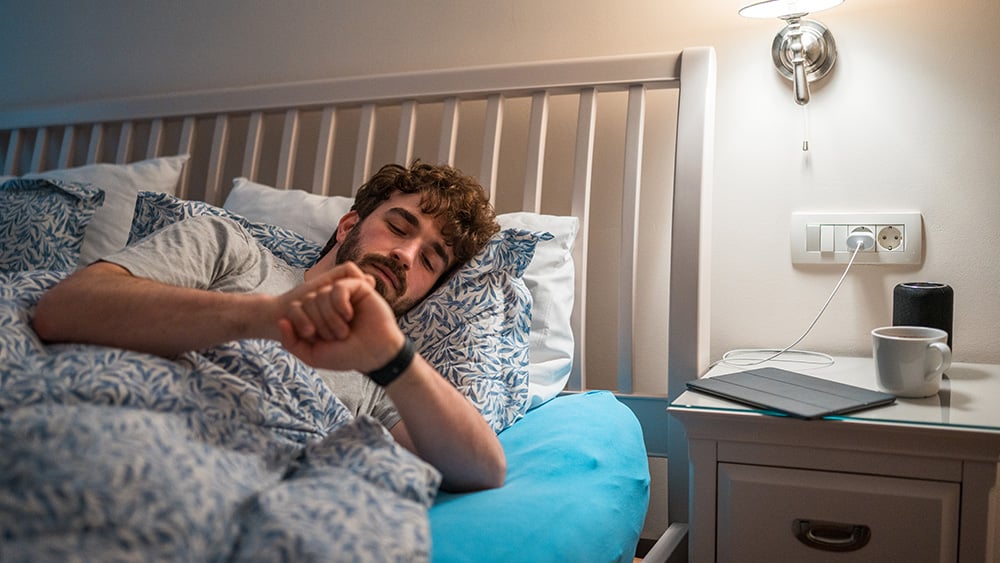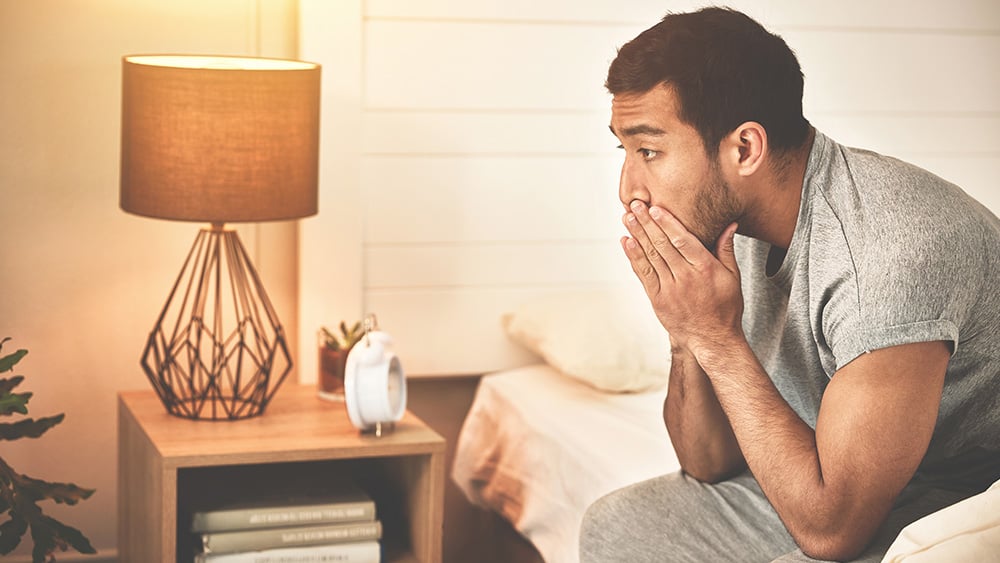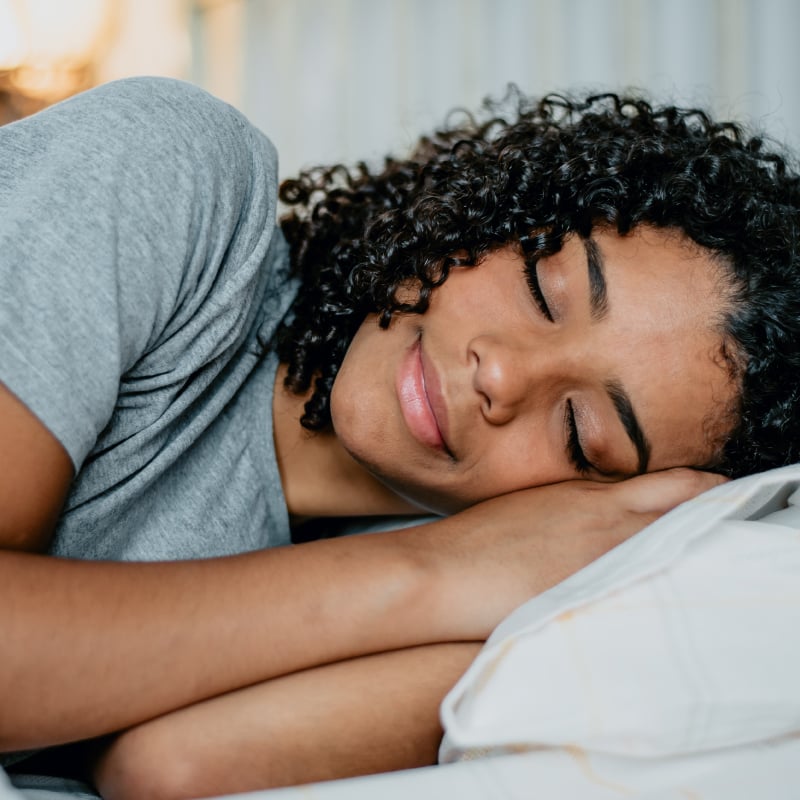Key Takeaways
- Since your mind and body aren’t preoccupied with responsibilities and tasks at night, your mind has more time to process.
- Symptoms of nighttime anxiety are similar to panic attacks during the day with racing heart rate, racing thoughts, changes in breathing, and feeling jittery.
- Techniques like focusing on your senses and breathing, progressive muscle relaxation, and mental imagery can help to ground you and relieve anxiety symptoms.
Have you woken up in the night with your heart racing and thoughts moving so quickly through your mind that you feel swept up in a whirlwind?
You are not alone – many people experience bursts of intense anxiety or panic attacks at night.
As there are fewer distractions, tasks, and responsibilities in the night hours, our minds are able to begin processing what happened. This might happen for something that happened in the last 24 hours, or even something that happened months or years ago.
“We might think about regrets from the past or worries about the future, we could even be processing various events that we experience throughout the day,” said Danielle Foeller, LMSW, a primary therapist who works with adults at RRH Behavioral Health Center - Greece Canal Ponds. “So sometimes we have a bit more time to think about all those things at nighttime.”
Symptoms of nighttime anxiety or panic attacks
When people become fixated on these thoughts, things can feel like they are spiraling out of control very quickly. Anxiety attacks or panic attacks at night are very similar to ones that happen during the day.
Someone might experience:
- Rapid heart rate
- Racing thoughts
- Changes in breathing
- Feeling jittery or restless
“The experience and sensations are very similar to daytime anxiety, but you may be noticing them more because of the nighttime,” Foeller said.
How to slow feelings of anxiety at night
One of the most effective tools you can use in calming feelings of anxiety and panic attacks are called grounding techniques.
Focusing on your senses: Concentrate on what you can feel physically using your five senses. Touch the blankets in your bed, feel your body temperature, smell your pillow – as you come into contact with the world around you, your heart rate and breathing will slow down.
Progressive muscle relaxation: This exercise can help you feel in control of your body starting from your head and working down to your toes. Clench and squeeze some of your facial muscles, hold them, then slowly release. Bring your shoulders up to your ears, hold that position, then slowly release. Repeat this concept all the way down your body.
Mental imagery: It sounds cliché, but imagine your happy place, an environment that feels calming to you. Whether it’s a city street, a beach, or mountains – think about the senses you’d be experiencing in that location. This might be waves crashing, a warm breeze across your face, sand between your toes, etc.
Steady breathing: Work to bring your breathing back to a steady, controlled rate. You can do this by breathing in for 7 seconds, holding that breath for 4 seconds, then slowly releasing it for 7 seconds. Wait 4 seconds, then repeat the process.
Preventing nighttime anxiety
Making small changes to your evening routine can make a difference in the quality of your sleep too.
- Choose a specific bed time and waking up time to be consistent
- Limit your screen time 30-60 minutes before the time you fall asleep
- Do some grounding techniques before going to bed
- Journal some of your thoughts (before bed or when you wake up at night)
Being perfect at sleep isn’t the goal, Foeller emphasized. It’s about being as healthy as you can be on any given day.
“Obviously there are going to be things that come up in your schedule that might be a little different from day-to-day where you're not able to continue that healthy routine,” Foeller said.
If you are starting to have more frequent anxiety episodes at night (at least two consecutive weeks) and are unable to get good quality sleep and see it affect how you are functioning day to day, reach out to your primary care provider or your therapist.





